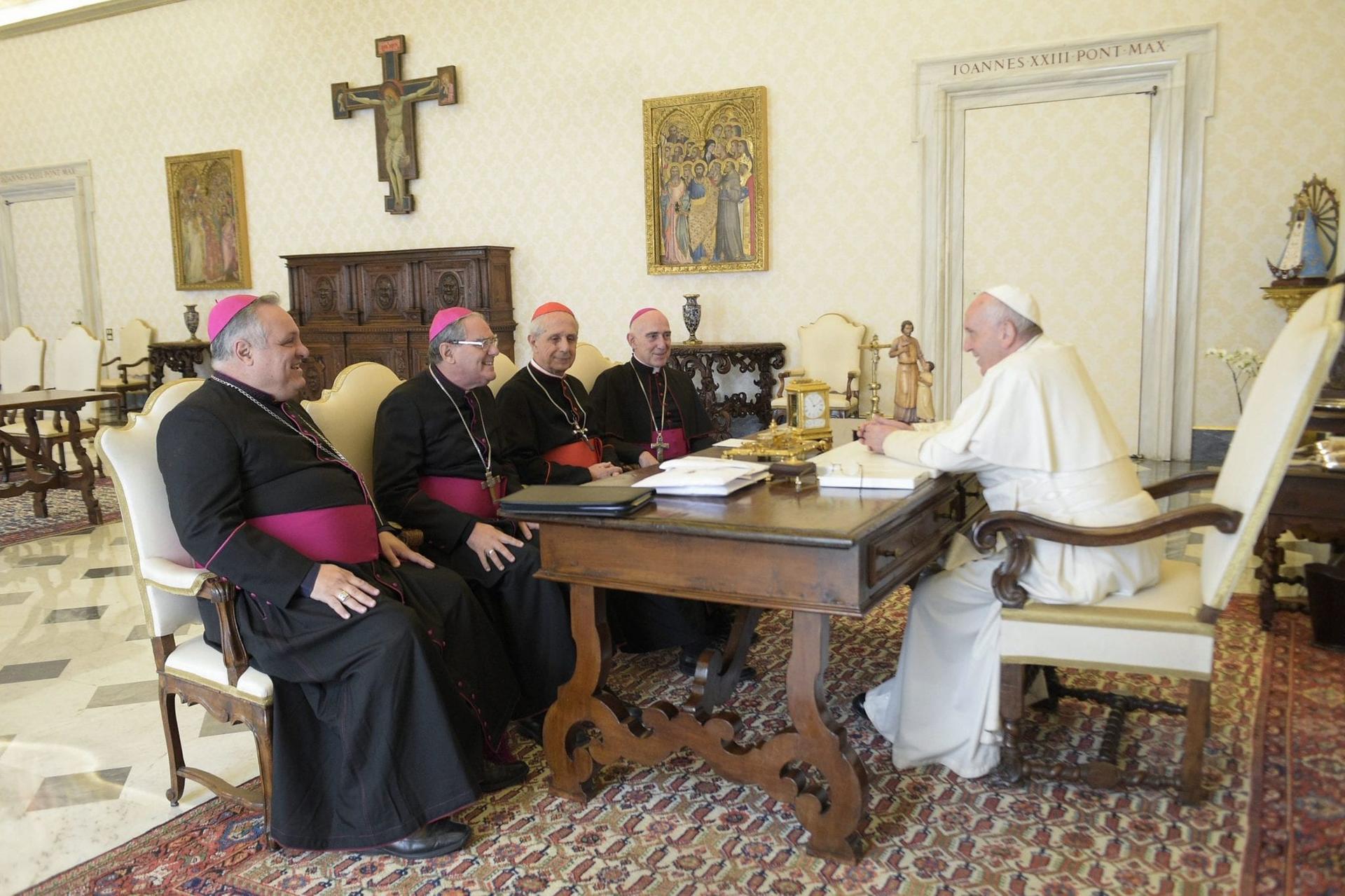ROSARIO, Argentina – Bishops in Argentina asked for “humility and unity” in the face of the country’s multiple crises, including the COVID-19 coronavirus pandemic, a risk of of defaulting on the national debt and growing polarization in society.
They also denounced the “sensationalist media” for fomenting the polarization with the view that division sells newspapers.
In a live statement during Virtual Social Week 2020 by the president of the Argentine bishops’ conference, Bishop Oscar Ojea, and the president of the conference social ministry commission, Bishop Jorge Lugones, journalists were called “not to fall into pettiness such as hatreds that depersonalize or ideological distancing when facing the inequalities evidenced by the emergency.”
The YouTube encounter had the theme, “No one is saved alone. It’s time to act now for the future.”
It was Lugones who called for setting aside “hatreds that depersonalize us, ideological distances and constant accusations that only generate enmity, disqualification, mediocrity and blame without solution.”
Ojea built on that, saying that in the face of the pandemic, national unity is needed, because in the “internal fights, falling into continuous injuries and making use of every single thing that happens to give it a personal spin has produced tremendous fatigue, despite the fact that some media insist that the ‘crack’ is what sells. ”
The “crack” or grieta in Spanish, is a term that is used to describe the division among Argentines, with everything – from soccer to Pope Francis – needing to fall on one side or the other.
“We can say that we are subjected, in some cases, to a sensationalist media that prevents us from entering the very serious reality each of the problems present,” Ojea said.
In his presentation, Ojea called for a “strong show of humility, very particularly for Argentines, who need to pretend that we know it all when, most times, we don’t.”
Reiterating the need to address the situation of the unemployment and hunger, Ojea recalled that the country already had a food emergency before the pandemic began, and that now it will be all the more difficult to address the problems, and it would be impossible without national unity.
An estimated 35 percent of the country’s population was living under the poverty line in 2019, and the latest statistics show that number has grown by seven percent since the pandemic hit. Furthermore, the United Nations estimated in June that over 55 percent of the country’s children will be in poverty by the end of the coronavirus crisis.
“At the same time, we have to realize that not everything must come from the State, as not everything can come from the market,” Ojea said, stressing that “communities have to participate in the great dialogue” that needs to “occur in our homeland.”
Meanwhile, Lugones stated that the pandemic has exposed the “enormous” number of people excluded from the system, who require attention today as well as opportunities in the near future. He also asked for the country to work together to overcome the inequalities that became all the more evident during these past months in different areas: Education, health care, connectivity and even banking.
Now more than ever, he said, it’s necessary for Argentina to re-think its economy, giving it a “human face” for the post-pandemic scenario.
“We need to insist that the pandemic, in addition to being a tragedy, can be an opportunity for conversion,” he said. “Conversion implies a change of course, but for this we must take steps, as in the spiritual life, and these steps are of transformation, we can transform something every day, from our cordiality, closeness, listening, dialogue, creativity and fraternal love” towards others.
Also taking part in the series of online panels on Monday was Bishop Gustavo Carrara, auxiliary of Buenos Aires, who is well-known for ministering as a “slum priest.”
Carrara said after the pandemic, everything cannot go back to what it was: “It’s possible to choose the utopia of being a fairer, more supportive and fraternal country where there is a concrete possibility of everyone having a piece of land they can work build a roof and work to care for one’s family.”
“Earth-Roof-Work are sacred rights,” he said, echoing Pope Francis.
Although he acknowledged that “it is difficult to think of the aftermath of the pandemic when we are perhaps entering the worst of it, at least in the Buenos Aires Metropolitan Area, it’s very necessary to do so.”
Carrara also spoke of the 4,400 slums and shantytowns in Argentina, saying that the pandemic exposed “the raw historical injustice” those who live in these neighborhoods face, with overcrowding, lack of public services and higher-than average crime rates, with little to no presence of the state security forces.
“But it must be said that the pandemic not only brought to light the inequity that existed, but also deepened and widened the gap,” he said. For instance, when it comes to education, most of those who live in the slum have no access to the internet to continue their education online.
“Who today, is going against the current and carrying out projects for those discarded by society? Where are the places that care for the most fragile of society in a world that is led by success?” Carrara asked. To answer these questions, the bishop said it’s necessary to make visible the invisible army of individuals who, throughout the nation, are “embracing life as it comes.”
Follow Inés San Martín on Twitter: @inesanma










